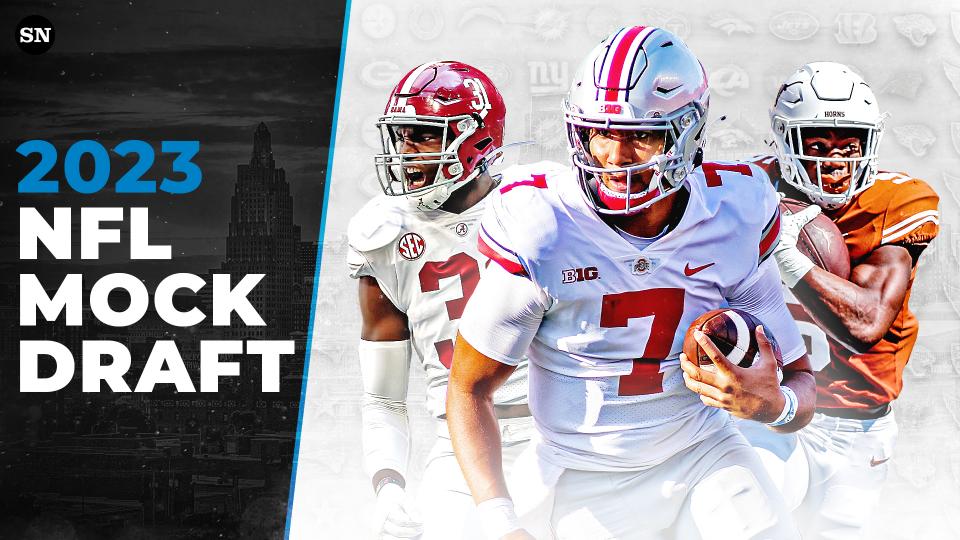Decoding the Draft: The QB Quandary - How Many Quarterbacks Should You Draft?
The siren song of a stacked quarterback room in fantasy football is alluring. But just how many signal-callers should you actually snag on draft day? It's a question that plagues fantasy managers every season, prompting endless debates and sleepless nights. This isn't just about grabbing a star QB; it’s about balancing your roster’s needs, maximizing value, and navigating the ever-shifting landscape of player performance.
The optimal quarterback draft strategy isn't a one-size-fits-all answer. It's a nuanced dance between your league's scoring settings, roster size, and your personal risk tolerance. Drafting two quarterbacks might seem like overkill, while only drafting one could leave you scrambling for a waiver wire replacement during a bye week or injury. So how do you find the sweet spot?
The history of fantasy football quarterback strategy has evolved significantly. In the past, quarterbacks were often prioritized highly, with many managers opting for a "stud QB" approach. However, with the rise of prolific passing offenses and the increased depth at the position, the value of waiting on a quarterback has become more apparent. Now, strategies like "late-round QB" or "streaming QB" have gained traction.
Understanding the number of quarterbacks to draft is crucial for maximizing your team's potential. A poor decision at the QB position can cripple your chances of a championship run, while a shrewd strategy can lay the foundation for a dominant season. The key issues revolving around this decision include balancing roster needs, evaluating quarterback value relative to other positions, and anticipating potential injuries or bye-week conflicts.
Let's explore some common scenarios. In a standard 12-team league with a single starting quarterback slot, drafting one quarterback is often the preferred strategy. This allows you to focus on building depth at other positions like running back and wide receiver. However, if your league utilizes a superflex spot (where a QB/RB/WR/TE can be started), drafting at least two quarterbacks becomes more crucial.
One benefit of drafting two quarterbacks is insurance against injury. If your starting quarterback goes down, you have a reliable backup ready to step in. Another benefit is the flexibility it provides, especially in leagues with bye weeks. You can strategically start the quarterback with the better matchup each week. Lastly, having a strong backup QB gives you trade leverage, as other teams may be desperate for a quality starter later in the season.
A step-by-step guide to determining your QB draft strategy: 1) Analyze your league settings (roster size, scoring, etc.). 2) Evaluate the quarterback talent pool. 3) Determine your overall draft strategy (e.g., zero-RB, robust RB). 4) Be flexible and adapt to the draft flow.
Advantages and Disadvantages of Drafting Multiple QBs
| Advantages | Disadvantages |
|---|---|
| Injury protection | Fewer roster spots for other positions |
| Bye week coverage | Potentially lower overall team ceiling |
| Trade leverage | Wasted draft capital if backups are unused |
Best Practices: 1) Don’t reach for a QB too early. 2) Consider streaming quarterbacks if your league settings allow. 3) Pay attention to bye weeks. 4) Monitor the waiver wire for potential QB breakouts. 5) Don’t be afraid to trade a backup QB for a needed player at another position.
Real Examples: In 2022, Jalen Hurts was a late-round QB target who delivered exceptional value. Conversely, drafting a top QB like Patrick Mahomes early didn’t always guarantee a championship.
FAQ: 1) Should I draft a QB in the first round? Generally, no. 2) What if my league has a superflex spot? Draft at least two QBs. 3) What if a top QB falls in my lap? Consider it, but don’t reach. 4) Should I draft a QB from my favorite NFL team? Draft based on value, not fandom. 5) What about streaming QBs? It can be a viable strategy in deeper leagues. 6) How important are QB bye weeks? Very important; try to avoid overlapping bye weeks for your QBs. 7) What if my starting QB gets injured? Having a backup QB is crucial in this scenario. 8) Should I trade my backup QB? If you can upgrade another position, yes.
Tips and Tricks: Be flexible, monitor the waiver wire for potential breakouts, and prioritize quarterbacks with favorable matchups. Don’t be afraid to stream quarterbacks if your league settings permit. Also, be aware of your league's scoring system, as some leagues prioritize passing yards more than others, which can influence QB value.
Determining how many quarterbacks to draft is a crucial element of a successful fantasy football strategy. Understanding the dynamics of your league, evaluating player value, and adapting to the ever-changing landscape of the NFL are essential for making informed decisions. The benefits of a strong quarterback room can be significant, providing insurance against injuries, bye-week coverage, and even trade leverage. By implementing the strategies discussed above, you'll be well-equipped to navigate the QB quandary and build a championship-caliber fantasy football team. Remember to analyze your league settings, stay informed about player performance, and be adaptable throughout the season. Don’t be afraid to experiment with different strategies to find what works best for you and your league. The pursuit of the perfect QB draft strategy is an ongoing journey, but with the right preparation and a little bit of luck, you can achieve fantasy football glory.
Navigating aarp medicare advantage plans
Understanding noise restrictions in nsw
Guten morgen sonnenschein noten pdf your guide to the song










